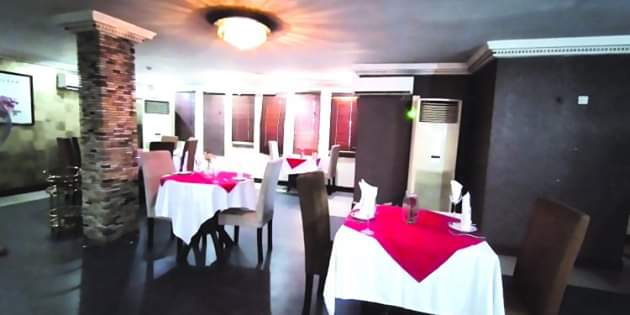
As the Coronavirus pandemic takes its toll on all sectors of the economy, the Chinese Restaurants are finding it difficult to brace the storm. With an average cost of N5, 000 food menus, the restaurants are daily counting losses, laying workers off, facing societal rejection and impending closure, writes JANE CHIJIOKE
THIS is quite a trying time for owners of Chinese Restaurants in the country. The business which was enjoying some form of visibility and patronage mostly from the elite class due to the uniqueness of its cuisines and cost is threatened following the breakout of the Coronavirus in Wuhan, China in December, last year.
With a minimum of N1, 000 menus, the Chinese food business seemed to be a viable market, serving different nationals visiting or living in the country as well as Nigerians who desire the taste of continental dishes. But with the raging effect of the virus killing over 7,000 across the globe with about 12 confirmed cases recorded in the country, applying caution to stay safe seemed to be the order of the day. This is having ripple effect on the business.
Pint-sized activities
Checks by The Nation showed that Chinese Restaurants are on the verge of closure. Save for the sounds emanating from television set and well-arranged tables anticipating the warmth of customers, the restaurants cut the picture of deserted zones.
At one of the restaurants visited, the environment in which it is situated was a bit glowing with human activities. People drove in and out of the plaza and engaged in one form of activity or the other. But The New China Restaurant, Ikeja was isolated. Not even the aromas emanating from the restaurant could lure the different nationals seen around the place.
Management’s seeming disappointment
At the reception of the restaurant was seated the Assistant Manager, Mr. Ademola Odunsanya pinning his gaze into the space, apparently displeased with the low turnout of customers. He couldn’t understand how much of negative impact the Covid-19 has had on his once-booming restaurant.
Anticipating customers soon appeared unrealistic as he was about to retire home as a few minutes past 4:00 p.m. even though the normal closing time of the restaurant was 10:30 p.m.
“You can see I’m preparing to go home. The Covid-19 outbreak has taken a huge toll on us. The societal stigma we face now is unbearable as if the virus resides in China Restaurants.
“Customers have suddenly disappeared. For instance, since today (Saturday), we are just having our first customers for the day as at 4:00 p.m. Nobody wants to come in. The Chinese and Asian dishes are somewhat regarded as exclusive dishes for the elite and here, we enjoy such patronage, but not anymore.
“This place used to be a very busy one for us. On a normal day, we can have above 40 customers inclusive of online orders. Even at times when we record poor sales, we make hundreds of thousands of naira, running into millions monthly. But now, even recording N30, 000 is taxing,” he said.
As a result of this, the volume of supplies of the restaurant used to have has reduced.
“We can’t buy more items any longer. We just buy few items that would last for just two days. If we are still unable to finish it within this short period it becomes an additional loss for us. We just have to do away with it and order for fresh ones again,” he added.
Indeed, this threatens the survival of the business. The inability of the restaurant to retain its almost 50 members of staff now has only eight members of staff. To remain in business, a minimum of 15per cent discount was introduced on every menu.
“This is just to hold back our customers. However, we are still trying to see how long this pandemic can hold. If it exceeds this month, I am afraid we might shut down,” Odunsanya stated.
The sentiment was not different at Hundreds Chinese Restaurant, Ikeja. The Supervisor, Isaiah Ubong explained that since the index case of the virus in the state in February, sales had dwindled.
He said despite measures such as encouraging hand washing, having hand sanitiser and temperature checks for all customers and members of staff, sales has not improved.
He said: “This place can be like this for days without anybody asking ‘what do you have.’ This is so unlike before when we do have good sales. Even the online orders don’t come in again. Also, we no longer see customers coming down here on weekends to have a great treat with their loved ones.
“Though last month’s sales were in bits but this month it is worse. In fact, at the beginning of March, we laid off workers. Out of 20, we only have three remaining. Our sales have drastically reduced to 10 per cent and are not good for any business.”
For Samuel Otto, a member of staff of Zenith Water Garden, Surulere, a Chinese food outlet, the uncertainty of receiving his February salary stares him in the face. He is worried that the daily low sales were fast threatening the sustenance of the business.
Coupled with his pending salary, the restaurant is faced with payment of its electricity bills and some tax bills from the local government area.
“There are no sales at all. On Sunday, our total sale was N3, 000 for the whole day. Last month (February), we didn’t even make up to N50, 000. I am so worried because it is affecting me. I don’t even know if I would receive my last month’s salary.
“As if that is not enough, we are faced with payment of electricity bill of 111,000 and some tax bills from the local government area totaling N350, 000.
“We have already sacked four members of staff because we couldn’t keep up with the expenses any longer. Customers are scared of Chinese restaurants. Even Nigerians that used to patronise us more have vanished. Nobody wants to eat Chinese food again. For now, we are still in talks with the owner to temporarily shut down the restaurant,” he said.
Customers speak
Mr. Grey Adesayan, a member of staff of one of the new generation banks told The Nation that he used to patronise Chinese Restaurants for dishes such as prawn rose, fried rice noodles with beef, prawns with chili sauce delight. But with the pandemic virus, he has retreated. He expressed the fear that some Chinese restaurants might still be importing their ingredients from China which make the restaurants unsafe for consumers.
For Mr. Chewg, his regular patronage for Kung Pao Chicken and some seafood has reduced.
“I am just being careful. It is a global issue and can be contracted at any given place. I order online only for now. But that doesn’t mean it is safer that way but still, I can’t starve myself,” he said.
Kingsley Odion has also minimised his eating out. According to him, before now, he visited Chinese restaurants at least four times in a month but not anymore due to fears of the virus.
“The outbreak also has to do with what they eat, how they prepared them and the low hygiene process they adopt in preparing these foods. As we see in the different viral videos on social media that is not healthy at all and I don’t see myself visiting such places any more even after the virus has been contained,” he said.
Stigma
The hotel owners are angry that they are being messed up on the grounds that the virus emanated from China. The societal rejection of Chinese restaurants, they say, threatens the survival of the business.
Despite efforts to assure their customers that the restaurants are safe through increasing their hygiene level among their members of staff, kitchen, environment and ensuring customers wash and sanitise their hands, the restaurants are still regarded as the virus zones.
“The online videos of that Wuhan market and some other unhealthy videos showing how Asian people eat live animals have affected these Chinese restaurants.
“Now customers are skeptical about the hygiene level employed in the kitchen. Some even think insects and awful animals are garnished with the foods sold in the restaurant or goods from Wuhan Market are brought down here,” said a member of staff of one of the Chinese restaurants in Victoria Island.
Refuting this, the Manager of Chinese Restaurants, Ikeja Airport Hotel Mr Femi Peters, who lamented his customer base has reduced from almost 20 per day to one or two, said the restaurant adopts quality hygiene procedures and most of the supplies are sourced locally from some China-based supermarkets.
“Some of the ingredients used are things that we used in our homes such as the ginger, garlic, tumeric and some other healthy herbs. As we all adopt protective measures to stay safe, Nigerians should not be scared to visit Chinese restaurants. They are safe,” he said.
At one of the China-based supermarkets in China Town, Ojota, Huafei Supermarket, the cashier, Maryam Ibrahim explained that since the outbreak of the virus, the company has not brought in any new goods from China. Besides, they have not run out of stocks as there has been low patronage.
On his part, the Secretary of Nigerian Hotel Association, Jijiwin Akpovwovwo feels the way the Covid-19 virus is being reported is over bloated, putting more fears in the public.
“The ones isolated so far have always been negative. The fact that one has running nose or fever or cough doesn’t mean one is suffering from the Coronavirus. Let us be very careful in the way we inform the public. The public is just developing phobia towards these restaurants and it is not reasonable,” he said.
He said though the Chinese restaurants are facing hard times at the moment, the business no longer thrives well as it was in the past decade during the booming Chinese-Nigerian textile trade. The heavy presence of the Chinese in the country, he said, was a boost for the trade and the economy but when the textile business collapsed, this forced the Chinese to travel back to their country.
“It affected the economy in terms of foreign exchange. These are people who buy, eat and make use of our services. Many of them provided supplies and contracts. So, it boosts up the trade. Now, we just have few in the country. The Chinese restaurant market is still trying to pick up again,” he said.
With the raging effect of the virus on the economic activities in the country, a Human Resource person, Nigerian Hotel and Tourism Investment, who prefers anonymity expressed worries that the safety of the country is at risk.
She said while many travelers who are returning, now use hotels as isolation centres, it is putting hotels at high risk and as a result, many who would have wanted to lodge in a hotel for vacation, events or for business occasions are being put off.
“A whole lot of programmes are being shut down. Customers are cancelling their stay in hotels because of those using it as isolation centres. This is greatly affecting hotel management and the economy as a whole because a lot of people are losing their jobs in the process, no patronage, and businesses are shutting down. These are threats to the security of the nation. When there is no job and the unemployment rate is on the increase, that is quite a disaster,” she said.












